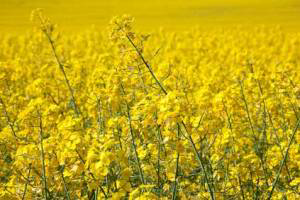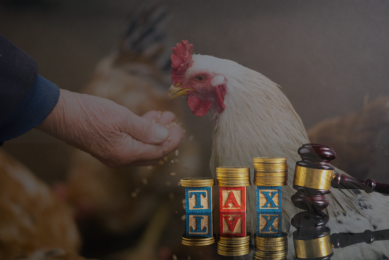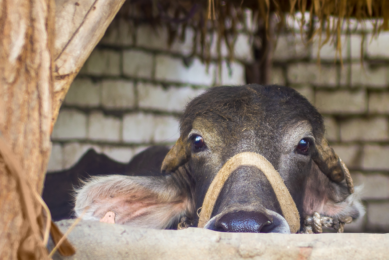Oilseed rape set for lowest area in four years

The UK winter oilseed rape area is set for a significant drop this season amid falling prices, enforced rotational changes and pest attack.
After a record high in autumn 2012 of 756,000ha, the area dropped about 6% after a difficult growing season and late cereal harvest for 2013.
That trend may continue, with experts predicting the 2014 crop could shrink by between 5-15%, taking plantings below 700,000ha for the first time since 2010.
See also: Oxfordshire grower aims for 5t/ha oilseed rape crop
United Oilseeds trade 25% of the national crop and supply about 30% of the seed planted across the country and its trading manager Owen Cligg says it is particularly tricky to estimate this season.
“Seed sales are down between 10-20%, but with the drop in price growers might be looking to save costs by home-saving seed if they grow conventional varieties.
“However, there has been a big swing towards hybrids in recent years and of course, you can’t home save hybrid seed. I would think the final figure is likely to be about a 15% fall,” says Mr Cligg.
Some growers have left any decision on what to drill until the last minute this season, waiting for clarity on new CAP greening and three-crop rules.
In addition, the HGCA reports a current rapeseed price at £248/t delivered, down £59.50/t from £307.50/t a year earlier. September 2012 saw a high of £407/t.
Mr Cligg says forward prices for November 2014 are about £240/t ex-farm, which is also making growers think twice about oilseed rape in their rotation if costs of production may not be covered.
“Particularly where farms have bad blackgrass, it could be time to address the issue with fallow or spring crops while price are depressed and greening rules have created interest in peas, beans, oats and linseed,” he adds.
Pest pressure
On top of growers boycotting winter oilseed rape due to the depressed prices, increased pressure from cabbage stem flea beetles after the ban on neonicotinoid seed treatments will also have a strong influence on the area of crop that makes it through to the next harvest.
David Neale, business development at Agrii, makes a more conservative estimate of the total drop in area at 7-10%, but warns it could rise if crops continue to be ripped up where flea beetles have caused the worst damage.
Warm temperatures and little wind are favouring the beetles at present and widespread pyrethroid insecticide resistance is making control tricky.
“Some will try and redrill, but with the cost of re-establishing a crop significant when prices are where they are, many could opt out of rape,” says Mr Neale.
On the pulse
Agrii has seen an increasingly high demand for pea and bean seed this year and has already sold out of some varieties, but growers should think carefully before moving away from oilseed rape according to Mr Neale.
He notes that the pulse market is limited and potential premiums rely on achieving quality for the human consumption market, with spring barley a more reliable alternative option.
“With the mild weather forecast, there is still time to get oilseed rape in the ground and away ahead of winter if you choose the most vigorous varieties,” says Mr Neale.
Source: FWI











